Paddle-making course at Sylva’s Wood Centre, near Oxford
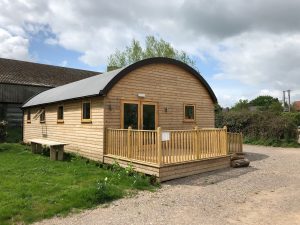
"Why did you spend two days of your life and about £200 to make a paddle?" asked a friend after I got home from this weekend course in Oxford. Obviously I'd failed to explain that this was about much more than just planing and sanding a single piece of ash wood into a nice paddle. For me, it was more like a holiday - getting away from computer screens for two days, spending time with my grown-up son (who made his own paddle) and learning how to use edge tools properly. It was also about meeting a group of half a dozen like-minded individuals each hungry to learn new skills in woodworking. When I showed my beautiful paddle to my sceptical friend and told him about the people I'd met, he understood better and even said he wanted to go on the same course.
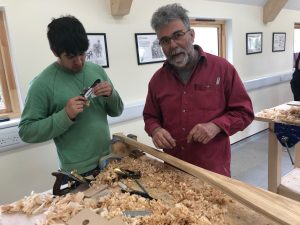 Actually it's not easy to find courses like this. Our tutor, Colin Henwood, who has been building boats on the Thames for 40 years, only teaches paddle-making twice a year: his next course at the Wood Centre is on the weekend of Saturday 19th October 2019 and will no doubt sell out very shortly. Colin spent every minute of our two days helping and supporting us - he demonstrated, gave us one-to-one tuition, gently coaxed us along, and continually sharpened the blades on the planes and spokeshaves. Also he'd patiently make coffee and tea for the seven of us until we noticed that we could take short breaks to help with that.
Actually it's not easy to find courses like this. Our tutor, Colin Henwood, who has been building boats on the Thames for 40 years, only teaches paddle-making twice a year: his next course at the Wood Centre is on the weekend of Saturday 19th October 2019 and will no doubt sell out very shortly. Colin spent every minute of our two days helping and supporting us - he demonstrated, gave us one-to-one tuition, gently coaxed us along, and continually sharpened the blades on the planes and spokeshaves. Also he'd patiently make coffee and tea for the seven of us until we noticed that we could take short breaks to help with that.
He transformed us from novices choosing our paddle blanks to proficient paddle-makers each holding an elegant, smooth finished paddle, for taking home as a trophy to our families. Each of us was given the whole range of tools so there was no need to share - a large plane for the long stretches like the paddle-blade, a block plane for shorter areas, and spokeshaves for the curved parts. 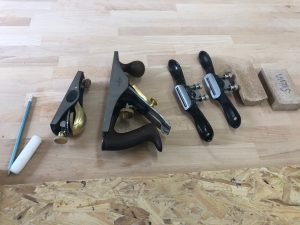 We also each had a pencil for sketching out areas to be shaped, a straight edge for marking, as well as a vice and jig for holding our works-in-progress. For later stages of our paddle-making we had cork blocks for holding the sandpaper and dustmasks for lung protection.
We also each had a pencil for sketching out areas to be shaped, a straight edge for marking, as well as a vice and jig for holding our works-in-progress. For later stages of our paddle-making we had cork blocks for holding the sandpaper and dustmasks for lung protection.
With practical woodworking tasks most people think they are pretty good - but ash wood is unforgiving of any arrogance. Working with is is humbling: it must be treated with respect and cut the right way. Colin Henwood showed us what works and all of discovered for ourselves what doesn't. What's needed are sharp blades cutting in regular smooth strokes rather than small snatched cuts. We learnt to follow some of Colin's mantras - "follow the direction of the grain", "use your whole body" and "make sure your blade is sharp". Murray, working on the bench next to me, works for the emergency services and had been given the course as a present from his wife. He said he loved the contrast between his daily life and the hands-on craftsmanship of creating something useful. As Murray pointed out to me, "making this paddle is a one-way process - once I've shaved off a piece of wood I can't stick it back on."
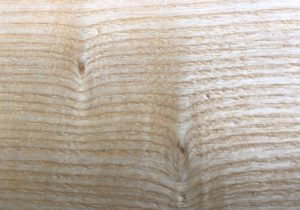 Making a canoe paddle comes to a climax once you get to the sandpapering stage. Following the grain - which was a big theme of the whole project - the sanding starts to bring out the colour of the wood and its patterns. The first type of sandpaper we used was the 100, which is the coarsest, and we went through the grades 120, 150 and eventually to the finest, the 180 grade sandpaper. Most of us had some small knots in our paddles. These had been hard to work with but as we got to the finest sandpaper these features made the extra effort seem worthwhile. Later we would apply Danish Oil, Teak Oil or varnish to protect the paddle and made the grain patterns stand out even more. At the end of the weekend we felt really proud to be holding something we'd made with our own hands but we also felt a new respect for wood and for edge tools - especially those of us who'd inflicted small cuts on their hands - though the main injury was blisters!
Making a canoe paddle comes to a climax once you get to the sandpapering stage. Following the grain - which was a big theme of the whole project - the sanding starts to bring out the colour of the wood and its patterns. The first type of sandpaper we used was the 100, which is the coarsest, and we went through the grades 120, 150 and eventually to the finest, the 180 grade sandpaper. Most of us had some small knots in our paddles. These had been hard to work with but as we got to the finest sandpaper these features made the extra effort seem worthwhile. Later we would apply Danish Oil, Teak Oil or varnish to protect the paddle and made the grain patterns stand out even more. At the end of the weekend we felt really proud to be holding something we'd made with our own hands but we also felt a new respect for wood and for edge tools - especially those of us who'd inflicted small cuts on their hands - though the main injury was blisters!
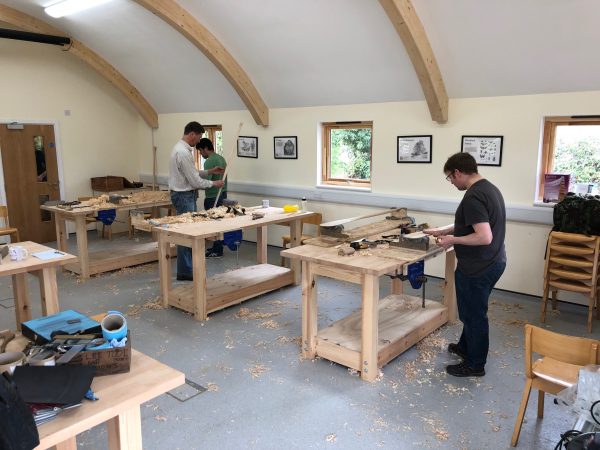
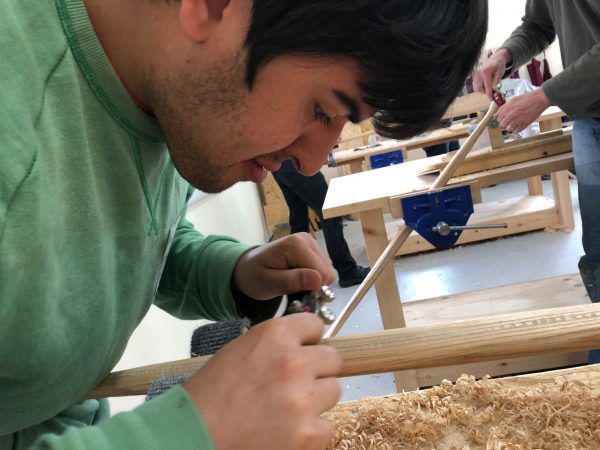
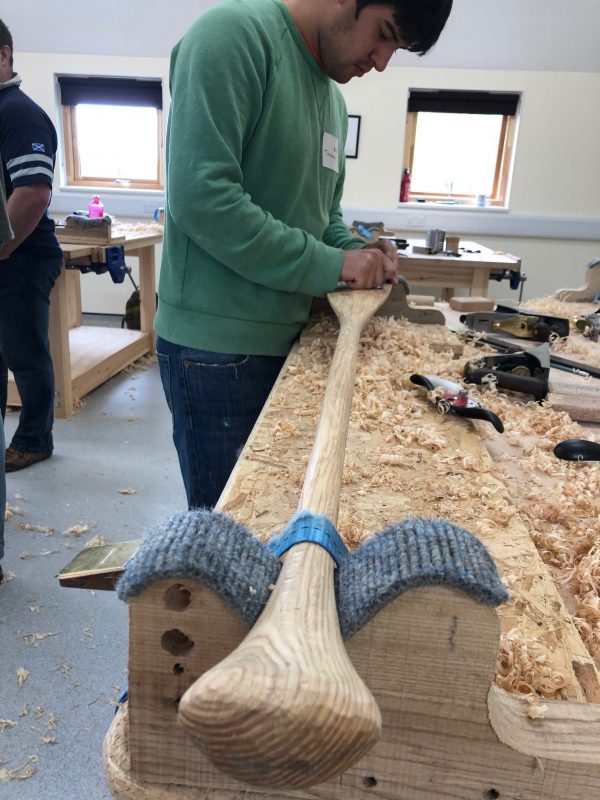
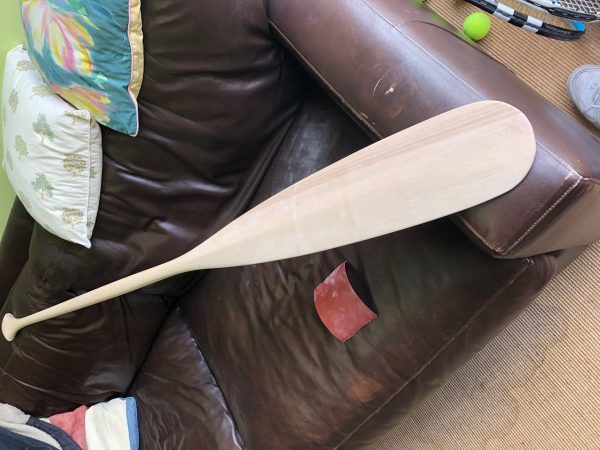
Comments are closed for this post.
